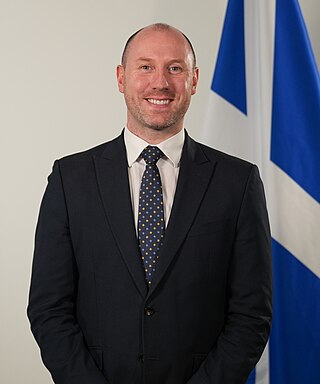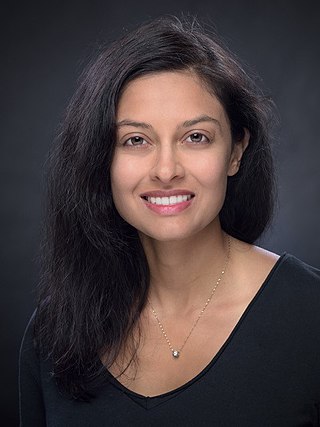Related Research Articles

The Scottish Office was a department of the Government of the United Kingdom from 1885 until 1999, exercising a wide range of government functions in relation to Scotland under the control of the Secretary of State for Scotland. Following the establishment of the Scottish Parliament in 1999, most of its work was transferred to the newly established Scottish Executive, with a small residue of functions retained by the Scotland Office.
In the United Kingdom, a chief medical officer (CMO) is the most senior government advisor on matter relating to health. There are four chief medical officers in the United Kingdom who are appointed to advise their respective governments:
The Academy of Social Sciences (AcSS) is a representative body for social sciences in the United Kingdom. The academy promotes social science through its sponsorship of the Campaign for Social Science, its links with Government on a variety of matters, and its own policy work in issuing public comment, responding to official consultations, and organising meetings and events about social science. It confers the title of Fellow upon nominated social scientists following a process of peer review. The academy comprises over 1000 fellows and 41 learned societies based in the UK and Europe.
Sir Douglas Andrew Kilgour Black was a Scottish physician and medical scientist who played a key role in the development of the National Health Service. He conducted research in the field of public health and was famous as the author of the Black Report. He was also known for the Black Formula, a translation of the Pignet formula to British measurements.
The Health and Social Care Directorates are a group of directorates of the Scottish Government. They are responsible for NHS Scotland, as well as policies on the development and implementation of health and social care.

The Cabinet Secretary for Health and Social Care,(Scottish Gaelic: Rùnaire a’ Chaibineit airson Slàinte is Cùram Sòisealta) commonly referred to as the Health Secretary, is a cabinet position in the Scottish Government. The Cabinet Secretary is responsible for the Health and Social Care Directorates and NHS Scotland.

The work of the Scottish Government is carried out by Directorates, each headed by a Director. The Directorates are grouped into a number of Directorates-General families, each headed by a Director-General. However, the individual Directorates are the building blocks of the system. The Directorates are further broken down into 'Divisions' and then by Units and finally by Teams. Divisions usually consist of 25-50 people. There is no direct correspondence between the political responsibilities of the Ministers in the Scottish Government and the Directorates, although in some cases there is considerable overlap. The Directorates are also responsible for a number of government agencies and non-departmental public bodies. Some government work is also carried out by Executive Agencies such as Transport Scotland, who sit outside the Directorates structure, but are also staffed by civil servants.

Healthcare in Scotland is mainly provided by Scotland's public health service, NHS Scotland. It provides healthcare to all permanent residents free at the point of need and paid for from general taxation. Health is a matter that is devolved, and considerable differences have developed between the public healthcare systems in the countries of the United Kingdom, collectively the National Health Service (NHS). Though the public system dominates healthcare provision, private healthcare and a wide variety of alternative and complementary treatments are available for those willing and able to pay.
A chief scientific officer (CSO) is a position at the head of scientific research operations at organizations or companies performing significant scientific research projects.
Generation Scotland is a biobank, a resource of biological samples and information on health and lifestyle from thousands of volunteer donors in Scotland.
Dame Anna Felicja Dominiczak is a Polish-born British medical researcher, Regius Professor of Medicine - the first woman to hold this position, and the Chief Scientist (Health) for the Scottish Government. From 2010 to 2020, Dominiczak was the Vice-Principal and Head of the College of Medical, Veterinary and Life Sciences at the University of Glasgow, Scotland. She is an Honorary Consultant Physician and Endocrinologist for the NHS Greater Glasgow and Clyde Health Board, and Health Innovation Champion for the Medical Research Council. From 2013 to 2015, Dominiczak was president of the European Society of Hypertension. She is the current Editor-in-Chief of Precision Medicine, a new journal launched in July 2023.
NHS Research Scotland, is a government agency that supports clinical and translational research in Scotland. NRS is a partnership between 4 of Scotland's medical schools, the Scottish NHS Boards and the Chief Scientist Office. NRS brings together the most senior figures from across Government, academia and the NHS.

Catherine Jane Calderwood is a Scottish consultant obstetrician and gynaecologist, who has served as the National Clinical Director for Sustainable Delivery at the Golden Jubilee University National Hospital since 2021. She previously served as the Chief Medical Officer for Scotland from 2015 to 2020, having advised the Scottish Government's initial response to the COVID-19 pandemic in Scotland.

Devi Lalita Sridhar FRSE is an American public health researcher, who is both professor and chair of global public health at the University of Edinburgh, Scotland. Her research considers the effectiveness of public health interventions and how to improve developmental assistance for health. Sridhar directs the University of Edinburgh's Global Health Governance Programme which she established in 2014.

The COVID-19 pandemic in Scotland is part of the COVID-19 pandemic of coronavirus disease-2019, caused by the virus SARS-CoV-2. The first case of COVID-19 was confirmed in Scotland on 1 March 2020. Community transmission was first reported on 11 March 2020, and the first confirmed death was on 13 March 2020.
The Scientific Advisory Group for Emergencies (SAGE) is a UK Government body that advises central government in emergencies. It is usually chaired by the United Kingdom's Chief Scientific Adviser. Specialists from academia and industry, along with experts from within government, make up the participation, which will vary depending on the emergency. SAGE gained public prominence for its role in the 2020 COVID-19 pandemic in the United Kingdom.

In response to the COVID-19 pandemic in the United Kingdom, the UK Government introduced various public health and economic measures to mitigate its impact. Devolution meant that the four nations' administrative responses to the pandemic differed; the Scottish Government, the Welsh Government, and the Northern Ireland Executive produced different policies to those that apply in England. Numerous laws were enacted or introduced throughout the crisis.

Professor Sir Gregor Ian Smith is a Scottish general practitioner (GP) and former medical director for primary care in NHS Lanarkshire who has served as the Chief Medical Officer for Scotland since December 2020. He previously served in the position of Deputy Chief Medical Officer and from April 2020, until his appointment, served as Chief Medical Officer on an interim basis.

The Vaccine Taskforce in the United Kingdom of Great Britain and Northern Ireland was set up in April 2020 by the Second Johnson ministry, in collaboration with Chief Scientific Advisor Patrick Vallance and Chief Medical Officer Professor Chris Whitty, in order to facilitate the path towards the introduction of a COVID-19 vaccine in the UK and its global distribution. The taskforce coordinated the research efforts of government with industry, academics and funding agencies in order to expedite vaccine development and deployment.
David Christopher Crossman is a physician who has been the Dean of the University of St Andrews School of Medicine since 2014 and was the Chief Scientist (Health) within the Health and Social Care Directorates of the Scottish Government from 2017 to 2022.
References
- ↑ "New Chief Scientist (Health) appointed". The Scottish Government. Retrieved 24 April 2024.